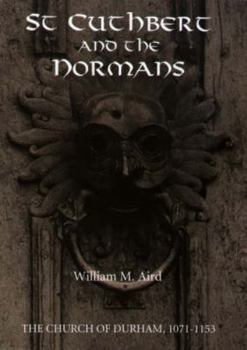St Cuthbert and the Normans: The Church of Durham, 1071-1153
(Part of the Studies in the History of Medieval Religion Series)
An alternative view of the Conquest and settlement from north-east England, charting relations between the monastic community and the invading Normans. North-east England experienced the Norman Conquest rather differently from the south of the country. This account of events in Northumbria gives an important alternative view of the Conquest and settlement, distinct from the moreusual southern and court-centred evidence. A key factor in events was the monastic community of St Cuthbert in Durham, which had survived the political upheavals following the collapse of the Northumbrian kingdom under Scandinavian pressure in the ninth century. Its position thus strengthened, it occupied an influential place in the factors ranged against the Normans, who recognised in the community a powerful force for resistance. The history of the community during the Anglo-Norman period is closely examined, particularly the relationship between the new Norman bishops and the monastic cathedral chapter and their respective rights and privileges. From this detailed study, Dr Airdargues that conquest, in the north-east at least, took a different, less traumatic form from that generally assumed from the early twelfth-century description of the reformation of the church in 1083. Throughout this account of events in Durham in the years following the conquest, Dr Aird is careful also to give due emphasis to relations with the Scots kings of the later eleventh and twelfth centuries, and to the distinctive nature of medieval Northumbriaand the Haliwerfolc in particular, that region subject to the bishops of the Church. Dr WILLIAM M. AIRD is Lecturer in History, School of History, Classics and Archaeology, University of Edinburgh.
Format:Hardcover
Language:English
ISBN:0851156150
ISBN13:9780851156156
Release Date:October 1998
Publisher:Boydell Press
Length:328 Pages
Weight:1.98 lbs.
Dimensions:1.1" x 7.0" x 9.0"
Customer Reviews
0 rating





